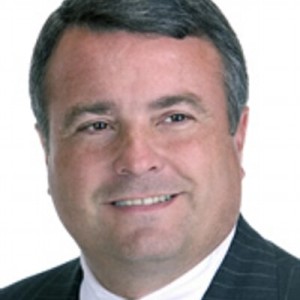Bill Seeks for Georgia to Join National Popular Vote Compact for Presidential Elections
 (APN) ATLANTA — HB 929, a bill co-sponsored by State Reps. Earl Ehrhart (R-Powder Springs), Stacey Abrams (D-Atlanta), and others, would change Georgia’s allocation of Electoral College votes, in concert with several other U.S. states, to effect a national popular vote for the President of the United States.
(APN) ATLANTA — HB 929, a bill co-sponsored by State Reps. Earl Ehrhart (R-Powder Springs), Stacey Abrams (D-Atlanta), and others, would change Georgia’s allocation of Electoral College votes, in concert with several other U.S. states, to effect a national popular vote for the President of the United States.
Currently, per the federal Constitution, U.S. Presidents are elected not by popular vote, but through a convoluted, undemocratic process called the Electoral College, which gives smaller U.S. states more weight than larger ones.
But that could change if enough state legislatures, including Georgia’s legislature, take action.
Georgia is considering joining a novel effort: Amending the Constitution is a difficult task; however, U.S. states have discretion over how they allocate their Electoral College votes. And if enough U.S. states join a compact to deliver all their EC votes to the national popular vote winner, whoever that is, then those states have effected a national popular vote without actually amending the Constitution or abolishing the electoral college.
Atlanta Progressive News reported that several states were quietly forming this compact, as of 2012:
Georgia is now considering such legislation.
The National Popular Vote bill has already been enacted into law by the States of California, Hawaii, Illinois, Maryland, Massachusetts, New Jersey, Vermont, and Washington; and the District of Columbia. In addition, the bill has passed at least one legislative house in an additional twelve states.
Legislators in these blue, or Democratic, states, have been motivated by the fact that Presidential campaigns tend to focus their efforts of the so-called swing states, or purple states, while ignoring solidly blue states.
But Georgia has been ignored too for the last decade at least because it has been perceived as solidly red.
The bill passed the House Committee for Interstate Cooperation on February 17, 2016.
The National Popular Vote bill is endorsed by Common Cause, the League of Women Voters, FairVote, Sierra Club, Brennan Center for Justice, NAACP, National Black Caucus of State Legislators, ACLU, the National Latino Congreso, Asian American Action Fund, DEMOS, National Coalition on Black Civic Participation, Public Citizen, U.S. PIRG, and Defenders of Wildlife Action Fund, and by newspapers across the country.
So far, the National Popular Vote bill has been enacted by states possessing 132 electoral votes. This is about half of the 270 electoral votes needed to bring it into effect.
The bill is expected to come up in the House Rules Committee as early as this Friday, February 26, 2016.
Democracy for America and Common Cause have been emailing their members, asking them to lobby in favor of the bill.
http://www.national-popular-vote.com/Campaign/GA/GA2
(END/2016)
A survey of Georgia voters showed 74% overall support for the idea that the President should be the candidate who receives the most popular votes in all 50 states.
By political affiliation, support for a national popular vote for President was 75% among Republicans, 78% among Democrats, and 67% among others.
By gender, support was 80% among women and 68% among men.
By age, support was 68% among 18-29 year olds, 77% among 30-45 year olds, 74% among 46-65 year olds, and 76% for those older than 65.
Like Georgia, 37 other states have been politically irrelevant in presidential general election campaigns.
The National Popular Vote bill has passed 34 state legislative chambers in 23 rural, small, medium, large, Democratic, Republican and purple states with 261 electoral votes, including one house in Arizona (11), Arkansas (6), Connecticut (7), Delaware (3), Maine (4), Michigan (16), Nevada (6), New Mexico (5), North Carolina (15), Oklahoma (7), and Oregon (7), and both houses in Colorado (9).
Analysts already conclude that only the 2016 party winner of Florida (29 electoral votes), Ohio (18), Virginia (13), Colorado (9) ,Nevada (6), Iowa (6) and New Hampshire (4) is not a foregone conclusion. So, if the National Popular Vote bill is not in effect, less than a handful of states will continue to dominate and determine the presidential general election.
The only states that received any attention in the 2012 general election campaign for President were states within 3% of the national outcome.
The indefensible reality is that more than 99% of presidential campaign attention (ad spending and visits) was invested on voters in just the only ten competitive states in 2012.
Two-thirds (176 of 253) of the general-election campaign events, and a similar fraction of campaign expenditures, were in just four states (Ohio, Florida, Virginia, and Iowa).
The predictability of the winner of the state you live in determines how much, if at all, your vote matters.